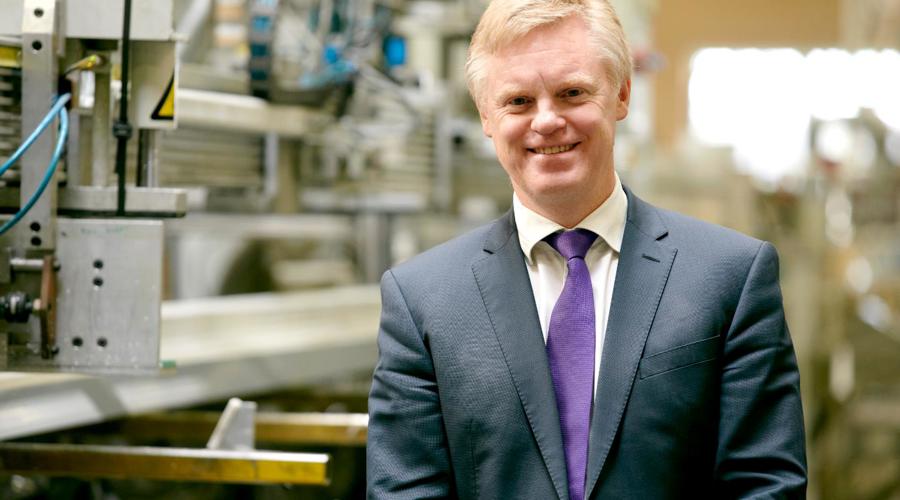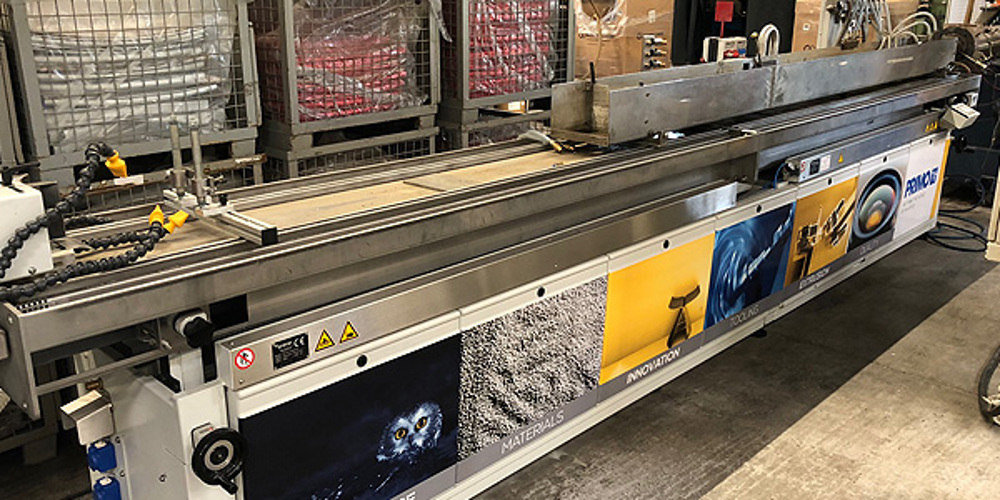This is how we will stop plastic pollution
As plastic waste pollutes the oceans, consumers, politicians, and environmental NGO’s expect action from the plastics industry. This is a challenge we are happy to take on in the industry. Among others by minimising the use of polluting plastics and increase the use of recycled plastics as an alternative to wood and metal, which both emits more CO2 than recycled plastics.


As plastic waste pollutes the oceans, consumers, politicians, and environmental NGO’s expect action from the plastics industry. This is a challenge we are happy to take upon us in the industry. Among others by minimising the use of polluting plastics and increase the use of recycled plastics as an alternative to wood and metal, which both emits more CO2 than recycled plastics.
Plastics are a product we never really learned how to deal with, even though plastics are omnipresent and have paved the way for the technological progress of the past 50 years.
Cars, computers, construction, aeroplanes, and cooking appliances couldn't be produced as expertly, cheaply, and be of as high a quality as they are today without the use of plastics. Our everyday life would not function without plastics - and in the industry, our opinion is that we have to learn to live with – and handle – plastics.
One of the lessons we have learned during the past few years is that plastics are not a panacea. Just like other materials, plastics should be utilised in cases where it optimises the products. In some cases, it might even be a more environmentally friendly choice of material than its immediate alternatives.
In a range of cases, plastics are far superior to more traditional materials such as wood and metal. In Denmark, many people consider window frames made of plastic as less attractive than windows with wooden frames – even though plastic window frames are objectively better on just about any parameter – including energy consumption, maintenance, life span, and recycling.
Plastics caused the throwaway culture
Plastics has been a poster child for everything artificial and cheap. Perhaps because plastics have been used to produce disposable items – bags, packaging, bottles, and cutlery since the early beginnings in the 1950s. Plastics has thus been an enabler of the throwaway culture.
This connection is disturbing for the plastics industry. On the one hand, there is an increasing demand for ever more specialised plastic products, and the industry needs to meet that demand by offering environment-friendly plastic alternatives to CO2-emitting materials such as wood and metal. On the other hand, we cannot tolerate that many of the plastic items we produce end up in the oceans – notably in the Third World .
Therefore the industry/Inter Primo supports the EU Commission’s decision to phase out the use of certain plastic products to protect the environment: Cutlery, balloon holders and Q-Tips are examples of products that are in the process of being discontinued.
Ending plastic pollution requires multiple approaches
Besides discontinuing disposable products, we need to reuse and recycle more. Ideally, the industry will invent a technology which will make it possible to feed recycled plastics into a machine that turns the recycled plastics into granulate ready for production of new plastic items.
Plastic waste is already widely collected for recycling. But there are at least 25 different types of plastics in an average container with mixed plastics. That makes it impossible to melt the various and combined materials into a usable mass – and it is even less realistic to establish and manage the logistics of a system that requires the consumers to sort 25 different kinds of plastics correctly.
Developing the necessary technology to make a reusable mass of mixed recycled plastics/to sort the various kinds of plastics is expected to cost billions of Danish kroner, and the task is too big for the individual production enterprises to take on. The technological requirements of such a feat are equivalent of sending a man to the moon. The industry/Inter Primo believes that it is possible to develop such a technology, but it requires international political action to create it.
Plastics as an environment-friendly resource
In the meantime, the members of the plastic industry each work on our recycling solutions in which we collect plastics made of just one kind of known plastic from our customers. When we know exactly what type of plastic an item consist of, we can recycle it. Circular processes like this are becoming ever more prevalent, not least because they make sense from an economic perspective. For example, the Danish plastic industry is a front runner in terms of recycling fishing nets, plastic packaging , plastic bags, and beer crates.
Another substantial part of the Danish and European plastics ends up at a combustion plant. Here, the plastics can contribute to producing heating and electricity to households. The environmental impact of burning plastics for energy production is minimal as long as the combustion plants use the correct filters in the process. I believe that Denmark/the plastic industry can eliminate our plastic pollution by fully rolling out the environmental initiatives that already exist in some parts of Denmark to the rest of the country. Collection, reducing the polluting types of plastics, efficient combustion, and circular production methods actually do work.
Plastics can be part of the solution
As we continue to roll out of the current environmental initiatives in Denmark, we should strengthen international cooperation to solve the global challenge. Many countries lack both recycling systems and a political framework for recycling. Here, populations often resort to burning their waste or dump it randomly. Both solutions are a catastrophe to their health and the environment.
The plastic industry is aware that plastic pollution poses serious problems. At the same time, we see plastics as part of the solution to global environmental challenges. For example, new markets occur in the industry as plastics replace wood and metal and reduce CO2-emissions in doing so. Replacing metal with plastic lightens the carbon footprint because mining is highly polluting and energy extensive. Wood production from foresting can burden the carbon footprint of a company more than plastic production. Therefore, many companies prefer plastic over wood.
Learn more about Primo's approach to sustainable plastic production here:
About Primo
Headquartered in Copenhagen, the Danish group has sales and production activities at 11 locations in Europe and China. The group currently has 980 employees and a turnover of 205 million EUR (per 31.12.2022). The company was founded and owned by the Grunnet family and, since its beginning in 1959, has specialised in designing and producing customer-specific profile solutions in plastic.